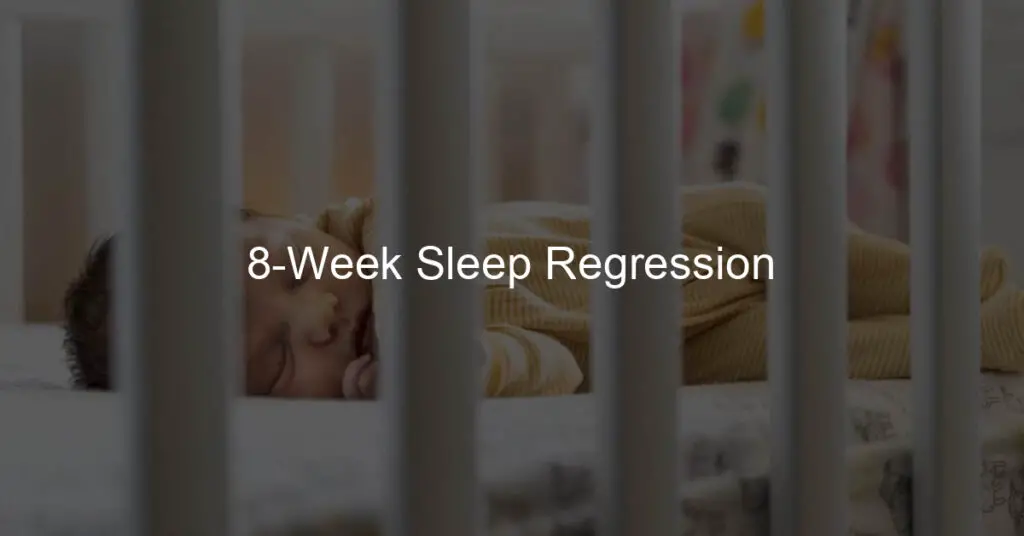Introduction to Baby Sleep Regression
As a parent, understanding your baby’s sleep patterns can be a challenging task. One of the most common issues that parents face is baby sleep regression. This term might sound intimidating, but it’s a normal part of your baby’s development. In this section, we will delve into the concept of baby sleep regression and its common signs.
Understanding the concept of baby sleep regression
Baby sleep regression is a period when a baby who has been sleeping well suddenly starts waking up at night, and has trouble falling back asleep. It’s a temporary phase and usually happens because your baby is going through a growth spurt or reaching a developmental milestone. Sleep regression can happen at any age, but it’s most common at 4 months, 8 months, and 18 months. It’s important to remember that every baby is unique and may experience sleep regression at different times.
Common signs of sleep regression in babies
Recognizing the signs of sleep regression can help you manage this phase more effectively. Some of the common signs include:
-
-
- Your baby wakes up more frequently at night.
- Your baby has difficulty falling asleep, even when they are tired.
- Your baby’s naps are shorter or they skip them altogether.
- Your baby is more irritable during the day.
- Your baby requires more attention and comfort from you to fall asleep.
-
These signs can vary from baby to baby. If you notice these changes in your baby’s sleep pattern, it’s likely they are going through a sleep regression phase.
Understanding baby sleep regression and its signs is the first step towards managing it. In the following sections, we will discuss the 8-week old sleep pattern, how to identify sleep issues, and provide solutions for sleep regression.

Understanding the 8-Week Old Sleep Pattern
Understanding your baby’s sleep pattern at 8 weeks old can be a game-changer in your parenting journey. This knowledge can help you anticipate your baby’s needs, plan your day better, and even improve your own sleep quality. Let’s delve into what you can expect during this phase.
- Normal sleep patterns for an 8-week old baby
At around 8 weeks, babies typically sleep for about 15 to 16 hours a day. This sleep is spread out over the 24-hour day, with a longer stretch of 4 to 6 hours at night. However, every baby is unique and there can be variations in this pattern. The key is to observe your baby’s cues and establish a flexible routine that works for your family.
During the day, your baby will likely have several naps that last between 30 minutes to 2 hours. It’s important to remember that sleep at this age is not only about rest. It’s also a crucial time for growth and development. So, ensuring your baby gets adequate sleep is essential.
- How sleep regression affects the 8-week old sleep pattern
Sleep regression is a period when a baby who has been sleeping well suddenly starts waking up more often and has trouble falling back to sleep. At 8 weeks, some babies may experience their first sleep regression. This is often linked to a growth spurt and increased brain development.
During this phase, your baby may wake up more frequently at night and have shorter naps during the day. This can be a challenging time for parents, but it’s important to remember that this is a temporary phase. With patience and consistency, your baby will return to their normal sleep pattern.
Understanding your baby’s sleep patterns and how sleep regression can affect them is the first step in navigating this journey. Remember, every baby is unique and what works for one may not work for another. Stay patient, flexible, and responsive to your baby’s needs. You’re doing a great job!
Identifying 8-Week Old Sleep Issues
As a parent, you may notice changes in your baby’s sleep pattern around the 8-week mark. This can be due to various reasons, including growth spurts, developmental milestones, or sleep regression. Understanding these sleep issues can help you better manage your baby’s sleep pattern and ensure their healthy growth and development.
Common sleep problems in 8-week old infants
At around 8 weeks, your baby might start experiencing certain sleep issues. These can include:
-
-
- Difficulty falling asleep: Your baby might have trouble settling down for sleep or staying asleep for long periods.
- Frequent night wakings: It’s common for 8-week old infants to wake up multiple times during the night. This can be due to hunger, discomfort, or a need for a diaper change.
- Short naps: At this age, babies often have short, irregular naps during the day.
- Overstimulation: If your baby is exposed to too much activity or stimulation before bedtime, they might have difficulty falling asleep.
-
How to differentiate between normal sleep disturbances and sleep regression
While it’s normal for babies to have some sleep disturbances, it’s important to differentiate these from sleep regression. Sleep regression is a period when a baby who has been sleeping well suddenly starts waking up at night and having shorter naps.
Here are some signs of sleep regression:
-
-
- Increased fussiness: Your baby might become more irritable, especially around nap times or bedtime.
- Changes in appetite: They might start eating more or less than usual.
- More frequent night wakings: While it’s normal for babies to wake up during the night, a sudden increase in night wakings can be a sign of sleep regression.
- Resistance to naps or bedtime: Your baby might start resisting their naps or bedtime, even if they are tired.
-
If you notice these signs, it might be a sign of sleep regression. However, it’s always a good idea to consult with your pediatrician to rule out any other potential issues.

Managing Baby Sleep Regression
One of the most challenging aspects of parenting is managing your baby’s sleep regression. This is a period when your baby, who had been sleeping well, suddenly starts waking up frequently at night and skipping naps. It can be a stressful time for both the baby and the parents. However, with the right approach, you can navigate this phase successfully. One such approach is sleep training.
Sleep Training Methods
Sleep training is a process that can help your baby learn to sleep independently. It involves teaching your baby to self-soothe and fall asleep on their own. Let’s explore this further.
1.Introduction to sleep training
Sleep training is not a one-size-fits-all solution. It’s a set of techniques that can be tailored to fit your baby’s unique needs and personality. The goal is to help your baby learn to fall asleep on their own and stay asleep through the night. It’s important to note that sleep training is not recommended for babies under four months of age. Before starting, it’s advisable to consult with your pediatrician.
2. Various sleep training methods
There are several sleep training methods that parents can consider. These include the Ferber method, the cry-it-out method, the chair method, and the no-tears method. Each method has its own set of guidelines and principles, and what works for one baby might not work for another. For instance, the Ferber method involves gradually increasing the time you leave your baby alone to self-soothe, while the no-tears method focuses on comforting techniques to help your baby sleep.
3. Choosing the right sleep training method for your baby
Choosing the right sleep training method for your baby requires understanding your baby’s temperament, your parenting style, and your family’s routine. It’s also important to be patient and consistent, as sleep training can take time. Remember, the goal is not to make your baby stop crying but to help them learn to sleep independently.
In conclusion, sleep training can be a helpful tool in managing baby sleep regression. However, it’s important to approach it with patience and understanding, keeping in mind that every baby is unique and what works for one might not work for another.
Parenting Sleep Tips
As a parent, managing your baby’s sleep regression can be a challenging task. But, with the right strategies, you can help your baby establish a healthy sleep pattern. Here are some essential parenting sleep tips to consider:
1.Creating a consistent sleep schedule
Consistency is key when it comes to your baby’s sleep. Try to put your baby to sleep and wake them up at the same time every day. This helps regulate their internal body clock and makes it easier for them to fall asleep and wake up. Remember, consistency is more important than the exact times. So, even on weekends, try to stick to the same sleep schedule.
2. Establishing a calming bedtime routine
A calming bedtime routine can signal to your baby that it’s time to sleep. This routine could include activities such as a warm bath, a bedtime story, or a lullaby. The routine should be calming and comforting, helping your baby to wind down and prepare for sleep. Remember, the routine should be consistent and not too long, ideally around 30 minutes.
3. Ensuring the baby’s sleep environment is conducive
The environment in which your baby sleeps can significantly impact their sleep quality. Ensure the room is dark, quiet, and at a comfortable temperature. Consider using a white noise machine to block out any potential disturbances. Also, make sure the baby’s crib or bed is comfortable and safe. According to the American Academy of Pediatrics, a firm sleep surface and a baby sleep sack can reduce the risk of SIDS (Sudden Infant Death Syndrome).

Understanding the Newborn Sleep Cycle
Understanding your newborn’s sleep cycle is crucial for both your baby’s health and your peace of mind. In this section, we will delve into the stages of the newborn sleep cycle and how sleep regression can affect it.
-
The Stages of the Newborn Sleep Cycle
Newborns experience two primary stages of sleep: Rapid Eye Movement (REM) and Non-Rapid Eye Movement (NREM). These stages cycle every 50-60 minutes throughout the night.
REM sleep: This is the stage where most dreaming occurs. For newborns, it’s a period of brain development and memory consolidation. It accounts for about 50% of a newborn’s sleep.
NREM sleep: This is a deeper, more restful stage of sleep. It’s split into three sub-stages: light sleep, deep sleep, and very deep sleep. During NREM sleep, the body repairs and regrows tissues, builds bone and muscle, and strengthens the immune system.
-
How Sleep Regression Affects the Newborn Sleep Cycle
Sleep regression is a period when a baby who has been sleeping well suddenly starts waking up at night, and has difficulty falling asleep again. It’s a normal part of a child’s development and can happen at several stages, including at 8 weeks.
Sleep regression can disrupt the newborn sleep cycle, leading to more frequent awakenings during the night. This is often due to developmental milestones that can make your baby more alert and less likely to fall into deep sleep. While it can be a challenging time for parents, it’s important to remember that sleep regression is temporary and a sign that your baby is growing and developing.
Understanding your baby’s sleep cycle and the impact of sleep regression can help you better navigate this challenging time. Remember, every baby is unique and what works for one might not work for another. Patience, consistency, and a whole lot of love are key.
Solutions for Sleep Regression
Understanding and managing sleep regression can be a challenging task for parents. However, there are various solutions available to help your baby get back on track with their sleep patterns. Let’s explore some of these solutions.
Professional Help for Severe Sleep Regression
If your baby’s sleep regression is severe and persistent, it might be time to seek professional help. Pediatric sleep consultants are trained professionals who can provide personalized strategies and support to help your baby sleep better. They can assess your baby’s sleep patterns, identify any underlying issues, and provide practical solutions. According to a study, professional sleep training can significantly improve a baby’s sleep quality and duration.
When to Seek Medical Advice
While sleep regression is a normal part of a baby’s development, there are times when it’s necessary to seek medical advice. If your baby is experiencing excessive sleepiness, difficulty breathing, or if the sleep regression lasts longer than a few weeks, it’s important to consult with a pediatrician. These could be signs of a more serious underlying condition like sleep apnea or an ear infection. Remember, it’s always better to be safe than sorry when it comes to your baby’s health.
In conclusion, dealing with sleep regression can be tough, but remember, you’re not alone. There are professionals and medical experts ready to help. The key is to remain patient, consistent, and open to seeking help when necessary.
Conclusion: Surviving the 8-Week Sleep Regression
As we wrap up our discussion on the 8-week sleep regression, it’s important to remember that every baby is unique. Your journey may not mirror that of another parent, but the shared experiences and knowledge can be a guiding light. Let’s recap the key takeaways and offer some encouragement for those navigating this challenging period.
Recap of key takeaways:
Understanding your baby’s sleep pattern is crucial. At 8 weeks, babies typically sleep for 15-16 hours a day, but this can be disrupted by sleep regression. Identifying the signs of sleep regression, such as increased fussiness, frequent night wakings, and changes in appetite, can help you manage the situation better.
Remember, sleep regression is a temporary phase. It’s a sign that your baby is growing and their brain is developing. Employing various solutions like establishing a bedtime routine, creating a sleep-friendly environment, and being patient can help manage this phase.
Encouragement for parents navigating sleep regression:rong>
Parenting is a journey filled with ups and downs. It’s okay to feel overwhelmed during this sleep regression phase. You’re not alone in this journey, and it’s perfectly okay to seek help and advice. Remember, this phase is temporary and will pass. Your baby is growing, and each new phase brings its own set of challenges and joys.
Stay patient, stay strong, and remember to take care of yourself too. Your well-being is just as important. You’re doing a great job, and your baby is lucky to have you. Keep going, and remember, every new day is a chance for learning and growth, both for you and your baby.














